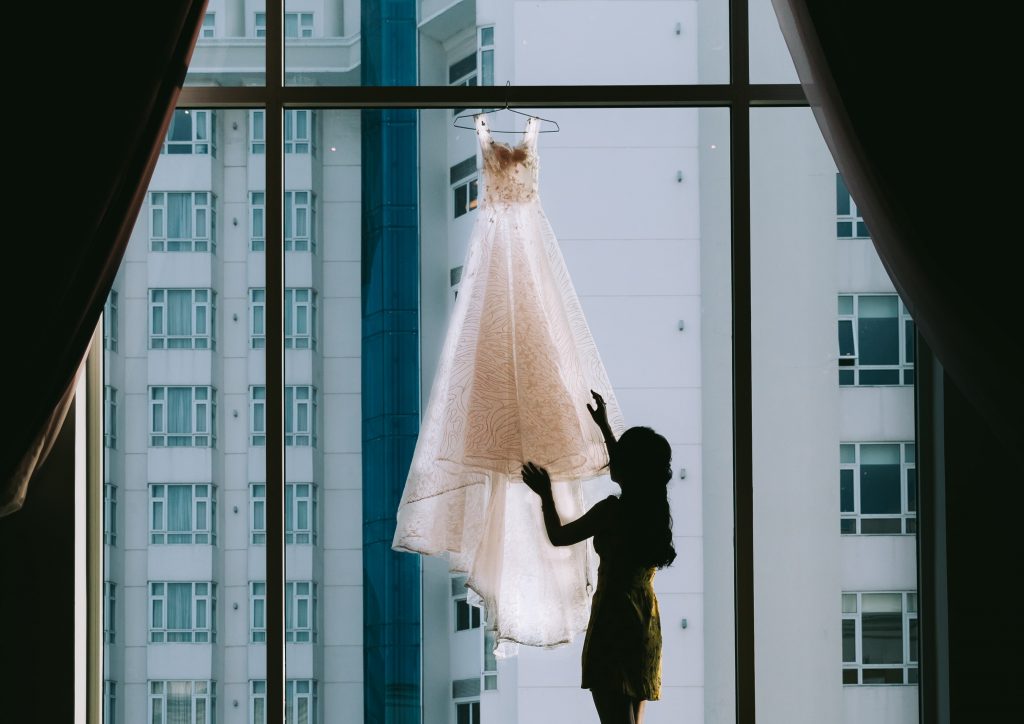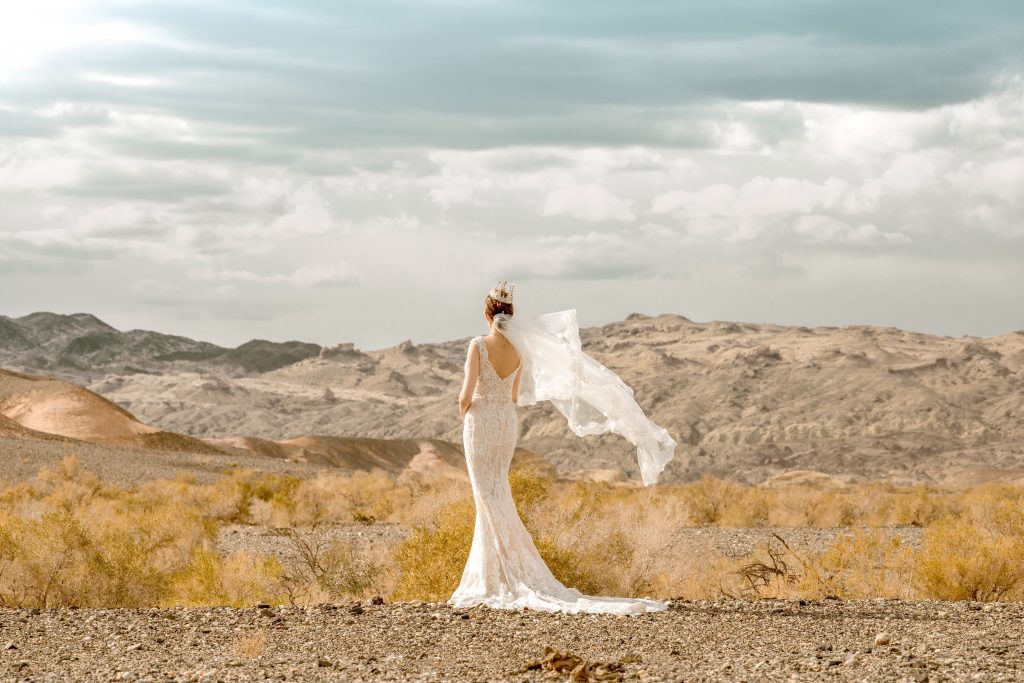Waiting a long time to get married can feel almost criminal. Clearly, one woman took this quite seriously and allegedly decided to take her man to court for failing to take the next step and get married after eight years together.
According to Kenyan news site Tuko, a Zambian woman named Gertrude Ngoma (26) grew tired of waiting for her longterm boyfriend and father of her child, Herbert Salaliki (28), to say ‘I do’. Despite a dowry being paid, the pair have never lived together and no wedding is on the horizon.
“He has never been serious, that is why I [brought] him to court, because I deserve to know the way forward and our future,” Ngoma told a Zambian court.
According to Salaliki, he cannot financially afford a wedding and that is why he has not proposed. He also added that Ngoma does not give him sufficient attention in their relationship.
Zambian news site Mwebantu reports that the judge, Evelyn Nalwize, said she cannot do anything as there is no formal marriage. However, she advised Ngoma to sue for breach of marriage contract.
Picture: Pexels
Trial and error is the key to success and, in this case, a guarantee you’ll look and feel your best on your big day. If you plan on…
An unidentified woman in the US is working hard to sell a vintage wedding dress she found in an abandoned old gold rush town while hiking.
Since returning home with the dress, she claims strange things have been happening to her. The bride is now trying to sell her dress on Facebook Market place for $600 (about R8 900).
“While my fiancé and I were hiking through a small town between Fairfax and Carbanado, Washington, we came across an old gold rush town that was completely abandoned,” she wrote. “Needless to say our curiosity got the best of us and we started to explore the ruins of this ghost town. In one of the rundown remnants of a small cottage we shimmied up into, I came across this dress.
“It was so gorgeous, I froze at the sight of it. And if I’m being completely honest, it scared the crap out of me all at the same time, but something about its ethereal beauty just begged me to bring it home with me.”
“First small things like a sock, and my closet door being open in the morning when I specifically remember closing it before bed. Then my cat’s food tray would get thrown at such velocity it would knock things off of the shelf hung on the wall it strikes. This happened relentlessly.”
Doors would slam, lights would turn on and off, and the couple heard footsteps all over their apartment. If that wasn’t bad enough, their home also began to smell.
“And then came the smell of rotten eggs and fire that would fill our bedroom. Night after night. Then flies started to pile up against my back windows and swarm around my front door.”
Life began to calm down after the woman gave the dress to her future mother-in-law for cleaning and tailoring.
“During the two months that she had the dress it was complete peace, no more tension in the room, no more arguing between me and my partner, no more objects moving or footsteps and my cat was back to her affectionate playful self,” she said.
“She never got it dry-cleaned and begged me not to get married in this dress because of the energy surrounding it and I hadn’t even told her about what was going on at home because up until that point, I hadn’t even connected the two.”
The bride is now keen to find a new owner for the cursed dress. However, her Facebook post did not get the reaction she was expecting. Many accused her of stealing the dress, and said she deserved to be haunted for taking something that did not belong to her.
Others said instead of selling and making a profit off of it, she should return the dress wear she found it to hopefully break the curse.
Picture: Unsplash
A fascinating wedding tradition that’s present across many cultures is the Money Dance. Although it’s slightly different in each iteration, the basis of all the customs is that…
Saint Lucia has been named as the top honeymoon destination for the 12th time by the World Travel Awards. This is also the third consecutive win for the island nation.
It beat out other loved destinations like Jamaica, the Maldives, Mauritius, Paris, Miami Beach, Oman, Maui in Hawaii and Cartegena de Indias in Colombia.
View this post on Instagram
While virtually accepting the award, Minister Honourable Dominic Fedee said: “Saint Lucia’s internationally acclaimed status is what we strive for daily in our strategic marketing and promotion efforts.
“The destination undoubtedly boasts of true passion in all key niches and amongst its hidden gems. It is indeed an honour for Saint Lucia to be named once again as the World’s Leading Honeymoon Destination, a sincere reflection of our culture and the people who propel the industry.”
View this post on Instagram
It seems this destination is quite popular. In addition to its winning category, Saint Lucia was also nominated as the World’s Leading Island Destination, World’s Leading Wedding Destination and World’s Most Romantic Destination 2020.
View this post on Instagram
If you’re newly engaged, you may be so in love with your ring that you never want to take it off. While fully understandable, an engagement ring is…
Veils are not made equal. From fabric and length to fullness and style, every aspect of your wedding veil can make or break your bridal look.
With thousands of veils to choose from, it can easily feel like an overwhelming task. However, there are ways to refine your search. These are the key veil lengths and the looks they suit best:
The birdcage:
For a vintage flair, opt for the birdcage veil. This short veil often features stiff netting or mesh that covers just the forehead and top half of the face. They are usually fastened to pillbox hats or headbands.
This veil looks best for brides wanting a more vintage, throwback look. It pairs especially well with tea-length dresses.
View this post on Instagram
Fingertip length veil:
For a more classic look, the fingertip length veil is perfect. This mid-length veil stops below the waist and is flattering on every body shape. Not too long and not too short, this veil can be dressed up or down depending on how fancy you want your look to be.
This is truly the jack of all veils. It flatters a range of hairstyles and dresses, so you have endless options with this look. If your dress is quite embellished and dramatic, it may be best to pair it down with a more simple veil. However, a more simple silhouette can be given added drama with a full veil.
View this post on Instagram
Ballet length veil:
One of the most popular veil looks is the ballet length. Also known as the waltz veil, it falls below your hips, anywhere between your knees and ankles.
This look is extra feminine and romantic, and works especially well on petite brides as it won’t drown her out with fabric and make her appear smaller.
View this post on Instagram
Chapel length veil:
Most brides traditionally opt for the chapel length veil, which drapes all the way to the floor and spreads out a few inches behind their wedding dress.
This style is more formal and traditional, making it perfect for brides wanting a classic look.
View this post on Instagram
Cathedral length veil:
This style is essentially the extended chapel veil. It’s usually about 30-60cm longer than a wedding dress, and often requires assistance when laying it out neatly behind you.
Brides wanting a bit more drama but not too much fuss will love this look. It complements ballgowns especially well, adding a special fairytale spin.
View this post on Instagram
The Royal veil:
It’s clear to see how this veil got its name. Channel the drama of Princess Diana with a bold wedding veil that extends not only centimetres but meters behind your dress. Of course, you’ll need some assistants on hand to make sure it looks perfectly sleek and straight, and that no one trips on it.
Naturally, this veil is perfectly designed to complement a dramatic ballgown.
View this post on Instagram
Picture: Pexels




